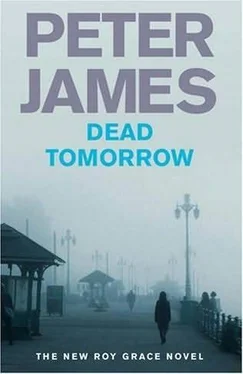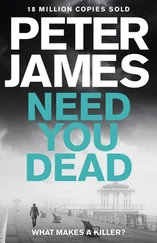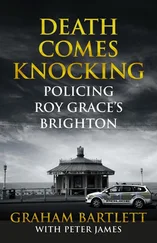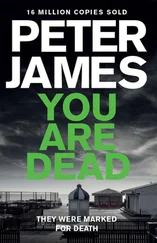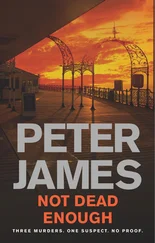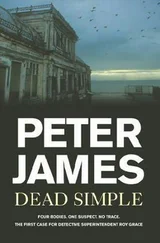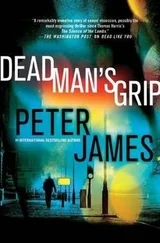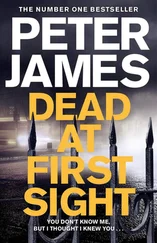God, I want to win that! she thought. It would pay for the car, and a treat for Caitlin – and help with her mounting monthly credit card payments.
There was a fine view across Brighton, now in winter darkness, from the office, but when she was at work she concentrated so hard she rarely had time to appreciate it. Right now, she had her phone headset on, a mug of tea cooling in front of her, and was focusing as best she could on working through her call list.
She stopped, as she did every few minutes, and looked with a heavy heart up at the photograph of Caitlin that was pinned to the red partition wall, directly above her computer screen. She was leaning against a whitewashed house in Sharm el Sheikh, looking tanned, in a T-shirt and shorts and a cool pair of sunglasses, and giving the photographer – Lynn – a jokey supermodel pout.
Then, returning to her call sheet, she dialled a number and a gruff male voice answered in a Geordie accent.
‘Yeah?’
‘Good afternoon,’ she said, politely. ‘Is that Mr Ernest Moorhouse?’
‘Um, who’s speaking?’ He sounded evasive suddenly.
‘My name is Lynn Beckett. Is that Mr Moorhouse?’
‘Well, yeah, it might be,’ he said.
‘I’m phoning from Denarii Collection Agency, following up a letter we sent you recently, regarding eight hundred and seventy-two pounds that you owe on your HomeFixIt store card. Could I just check your identity?’
There was a moment’s silence. ‘Ah,’ he said, ‘sorry, I misunderstood you. I’m not Mr Moorhouse. You must have a wrong number.’
The line went dead.
Lynn redialled and the same voice answered. ‘Mr Moorhouse? It’s Lynn Beckett from Denarii. I think we got disconnected.’
‘I just told you, I’m not Mr Moorhouse. Now eff off and stop bothering me or I’ll come round to New England Quarter and ram this phone up your blooming arse.’
‘So you did get my letter?’ she went on, unperturbed.
His voice rose several octaves and decibels. ‘What part of I’m not Mr Fucking Moorhouse don’t you understand, you stupid cow?’
‘How did you know I am in New England Quarter, unless you got my letter, Mr Moorhouse?’ she asked, still keeping calm and polite.
Then she lifted the headset away from her ears as a torrent of abuse came back. Suddenly the mobile phone in her handbag began ringing. She pulled it out and glanced at the display. It showed Private Number . She pressed the kill button.
When the abuse had ended, she said, ‘I should warn you, Mr Moorhouse, that all our calls are recorded for training and monitoring purposes.’
‘Yeah? Well, I’m going to warn you something, Miss Barnett. Don’t you ever call me again at this time of day and start talking to me about money. Do you understand?’
‘What time of day would be better for you?’
‘NO FUCKING TIME OF DAY. OR NIGHT. DO YOU UNDERSTAND?’
‘I’d like to see if we could make a plan for you to start paying this off on a weekly basis. Something you can afford.’
Again she had to hold the headset away from her ears.
‘I can’t fucking afford nothing. I lost my fucking job, didn’t I? I got fucking Gordon Brown in my fucking pocket. I got fucking bailiffs knocking at my door for bigger fucking debts than this. Now go away and don’t ever fucking call me again. DO YOU FUCKING UNDERSTAND ME?’
Lynn took a deep breath. ‘How about if you started off by paying us just ten pounds a week? We’d like to make it easy for you. A repayment plan that you would be comfortable with.’
‘ARE YOU FUCKING DEAF?’
The phone went dead again. Almost instantly, her mobile beeped, with a message.
She made a note on Ernest Moorhouse’s file. She’d arrange for him to be sent another letter, then follow it up with another call next week. If that did not work, and it rather sounded as if it wouldn’t, then she would have to hand it over to litigation.
Surreptitiously, because private calls were frowned upon, she brought her phone to her ear and checked her message.
It was from the transplant coordinator at the Royal South London Hospital, asking her to call back urgently.
There had been another suspicious death in the city over the weekend, a forty-year-old known drug dealer called Niall Foster, who had fallen seven floors from his seafront flat. It had the hallmarks of a suicide, but neither the Coroner nor the police were comfortable about coming to an early conclusion. The small inquiry team that had been set up to investigate had been allocated the third work station in MIR One, so to avoid interrupting them when they were there, and to more comfortably accommodate his growing team, Grace was now holding some of his twice-daily briefings in the conference room, across the corridor.
His team, which had expanded even further, were seated at the large rectangular table, with twenty-four occupied red chairs pulled up around it. At one end of the room, directly behind the Detective Superintendent, was a curved two-tone blue display board bearing the words www.sussex.police.uk and an artistic display of five police badges on a blue background, with the Crimestoppers name and number prominently displayed beneath each of them. On the wall at the opposite end was a plasma screen.
Grace felt under even more pressure than usual on this investigation now. At the dinner dance on Saturday night he had managed to have another chat with the new Chief Constable and had been surprised by how well briefed on the inquiry Tom Martinson was. He realized it wasn’t just going to be the ACC, Alison Vosper, watching his every step but Martinson himself. The three bodies were bringing the city of Brighton and Hove under increasing national media scrutiny, which meant, in particular, a focus on the competence of Sussex CID. The only thing keeping the discovery of the three bodies from attracting wider news coverage at the moment was that two small girls had been missing from their home in a village near Hull, for over a week, which meant most media attention was focused on them and their immediate family.
‘The time is 6.30 p.m., Monday 1 December,’ Grace announced. ‘This is the eighth briefing of Operation Neptune, the investigation into the deaths of three unknown persons.’ He sipped some coffee, then went on. ‘I held a very uncomfortable press conference this morning. Someone’s leaked about the missing organs.’
He stared at his most trusted colleagues in turn: Lizzie Mantle, Glenn Branson, who was dressed in an electric-blue suit as if ready for a night out, Bella Moy, Emma-Jane Boutwood, Norman Potting and Nick Nicholl, certain it was none of them, nor another face in the room, DS Guy Batchelor. In fact, he was pretty sure it wasn’t anyone here. Nor did he think it was the mortuary team. Or the press office. Perhaps someone in the Force Control Room… One day, when he had the time, he would find out, he promised himself that.
Bella held up a copy of the London Evening Standard and a late edition of the Argus. The Standard headline read: ORGAN THEFT RIDDLE OF BODIES IN CHANNEL. The Argus: CHANNEL BODIES MISSING VITAL ORGANS.
‘You can be sure there will be more tomorrow in the morning papers,’ he said. ‘There are a couple of TV news crews crawling all over Shoreham Harbour and our PRO’s been fielding calls from radio stations all afternoon.’ He nodded at Dennis Ponds, whom he had asked to attend this briefing.
A former journalist, the public relations officer looked more like a City trader than a newspaper man. In his early forties, with slicked-back black hair, mutantly large eyebrows and a penchant for slick suits, he had the tough task of brokering the ever-fragile relations between the police and the public. It was often a no-win situation, and he had been given the sobriquet Pond Life by those officers who remained suspicious of anyone with anything to do with the press.
Читать дальше
